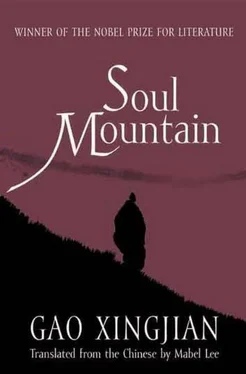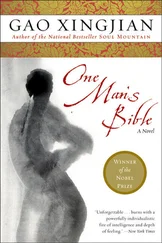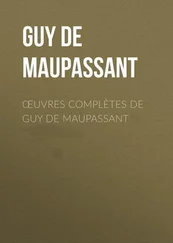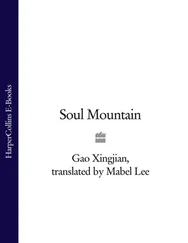What I want to say here is that literature can only be the voice of the individual and this has always been so. Once literature is contrived as the hymn of the nation, the flag of the race, the mouthpiece of a political party or the voice of a class or a group, it can be employed as a mighty and all-engulfing tool of propaganda. However, such literature loses what is inherent in literature, ceases to be literature, and becomes a substitute for power and profit.
In the century just ended literature confronted precisely this misfortune and was more deeply scarred by politics and power than in any previous period, and the writer too was subjected to unprecedented oppression.
In order that literature safeguard the reason for its own existence and not become the tool of politics it must return to the voice of the individual, for literature is primarily derived from the feelings of the individual and is the result of feelings. This is not to say that literature must therefore be divorced from politics or that it must necessarily be involved in politics. Controversies about literary trends or a writer's political inclinations were serious afflictions that tormented literature during the past century. Ideology wreaked havoc by turning related controversies over tradition and reform into controversies over what was conservative or revolutionary and thus changed literary issues into a struggle over what was progressive or reactionary. If ideology unites with power and is transformed into a real force then both literature and the individual will be destroyed.
Chinese literature in the twentieth century time and again was worn out and indeed almost suffocated because politics dictated literature: both the revolution in literature and revolutionary literature alike passed death sentences on literature and the individual. The attack on Chinese traditional culture in the name of the revolution resulted in the public prohibition and burning of books. Countless writers were shot, imprisoned, exiled or punished with hard labour in the course of the past one hundred years. This was more extreme than in any imperial dynastic period of China's history, creating enormous difficulties for writings in the Chinese language and even more for any discussion of creative freedom.
If the writer sought to win intellectual freedom the choice was either to fall silent or to flee. However the writer relies on language and not to speak for a prolonged period is the same as suicide. The writer who sought to avoid suicide or being silenced and furthermore to express his own voice had no option but to go into exile. Surveying the history of literature in the East and the West this has always been so: from Qu Yuan to Dante, Joyce, Thomas Mann, Solzhenitsyn, and to the large numbers of Chinese intellectuals who went into exile after the Tiananmen massacre in 1989. This is the inevitable fate of the poet and the writer who continues to seek to preserve his own voice.
During the years when Mao Zedong implemented total dictatorship even fleeing was not an option. The monasteries on far away mountains that provided refuge for scholars in feudal times were totally ravaged and to write even in secret was to risk one's life. To maintain one's intellectual autonomy one could only talk to oneself, and it had to be in utmost secrecy. I should mention that it was only in this period when it was utterly impossible for literature that I came to comprehend why it was so essential: literature allows a person to preserve a human consciousness.
It can be said that talking to oneself is the starting point of literature and that using language to communicate is secondary. A person pours his feelings and thoughts into language that, written as words, becomes literature. At the time there is no thought of utility or that some day it might be published yet there is the compulsion to write because there is recompense and consolation in the pleasure of writing. I began writing my novel Soul Mountain to dispel my inner loneliness at the very time when works I had written with rigorous self-censorship had been banned. Soul Mountain was written for myself and without the hope that it would be published.
From my experience in writing, I can say that literature is inherently man's affirmation of the value of his own self and that this is validated during the writing, literature is born primarily of the writer's need for self-fulfilment. Whether it has any impact on society comes after the completion of a work and that impact certainly is not determined by the wishes of the writer.
In the history of literature there are many great enduring works which were not published in the lifetimes of the authors. If the authors had not achieved self-affirmation while writing, how could they have continued to write? As in the case of Shakespeare, even now it is difficult to ascertain the details of the lives of the four geniuses who wrote China's greatest novels, Journey to the West, Water Margin, Jin Ping Mei and Dream of Red Mansions . All that remains is an autobiographical essay by Shi Naian and had he not as he said consoled himself by writing, how else could he have devoted the rest of his life to that huge work for which he received no recompense during life? And was this not also the case with Kafka who pioneered modern fiction and with Fernando Pessoa the most profound poet of the twentieth century? Their turning to language was not in order to reform the world and while profoundly aware of the helplessness of the individual they still spoke out, for such is the magic of language.
Language is the ultimate crystallisation of human civilisation. It is intricate, incisive and difficult to grasp and yet it is pervasive, penetrates human perceptions and links man, the perceiving subject, to his own understanding of the world. The written word is also magical for it allows communication between separate individuals, even if they are from different races and times. It is also in this way that the shared present time in the writing and reading of literature is connected to its eternal spiritual value.
In my view, for a writer of the present to strive to emphasise a national culture is problematical. Because of where I was born and the language I use, the cultural traditions of China naturally reside within me. Culture and language are always closely related and thus characteristic and relatively stable modes of perception, thought and articulation are formed. However a writer's creativity begins precisely with what has already been articulated in his language and addresses what has not been adequately articulated in that language. As the creator of linguistic art there is no need to stick on oneself a stock national label that can be easily recognised.
Literature transcends national boundaries — through translations it transcends languages and then specific social customs and inter-human relationships created by geographical location and history — to make profound revelations about the universality of human nature. Furthermore, the writer today receives multicultural influences outside the culture of his own race so, unless it is to promote tourism, emphasising the cultural features of a people is inevitably suspect.
Literature transcends ideology, national boundaries and racial consciousness in the same way as the individual's existence basically transcends this or that — ism. This is because man's existential condition is superior to any theories or speculations about life. Literature is a universal observation on the dilemmas of human existence and nothing is taboo. Restrictions on literature are always externally imposed: politics, society, ethics and customs set out to tailor literature into decorations for their various frameworks.
However, literature is neither an embellishment for authority or a socially fashionable item, it has its own criterion of merit: its aesthetic quality. An aesthetic intricately related to the human emotions is the only indispensable criterion for literary works. Indeed, such judgements differ from person to person because the emotions are invariably that of different individuals. However such subjective aesthetic judgements do have universally recognised standards. The capacity for critical appreciation nurtured by literature allows the reader to also experience the poetic feeling and the beauty, the sublime and the ridiculous, the sorrow and the absurdity, and the humour and the irony that the author has infused into his work.
Читать дальше
Конец ознакомительного отрывка
Купить книгу












